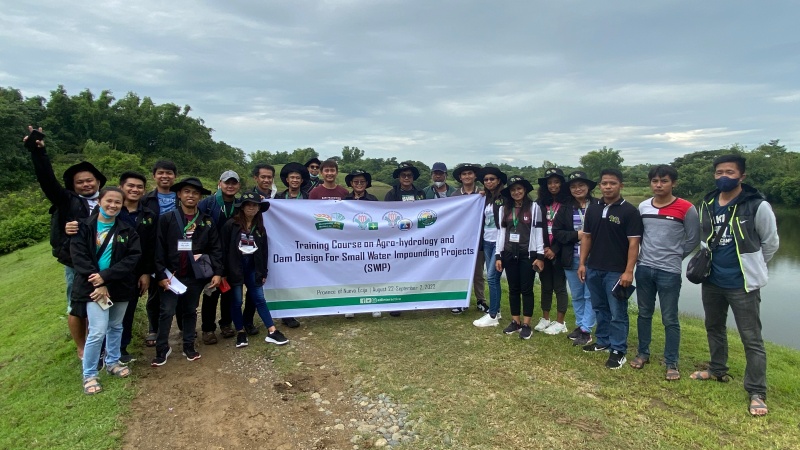
The Agricultural Training Institute (ATI), in partnership with the Bureau of Soils and Water Management (BSWM) successfully conducted the training course on “Agro Hydrology and Dam Design for Small Water Impounding Projects (SWIP) and Diversion Dam Design last August 22-September 2, 2022 at San Jose City, Nueva Ecija, and September 12-23, 2022 at Jimenez, Misamis Occidental.
The 12-day training course aimed to enhance the technical capability of selected agricultural and biosystems engineers from the local government units (LGUs) on planning, and designing detailed engineering plans and the program of works of their proposed projects.
Resource speakers from the BSWM discussed several topics as: Introduction to Small Scale Irrigation Projects (SSIPs); Agro-Hydrology Studies, Design of Dam Structures and other Appurtenances; Requirements for Hydraulic Design; Stability Requirements; Illustrative Design of SSIPs using design software; Program of Works; PERT-CPM; S-Curve; and Cost Estimates.
One of the highlights was the conduct of Site Visits of the existing SSIPs Projects in the region namely Old Sampaloc SWIP, New Sampaloc SWIP and Maasin SWIP located at Talugtug Nueva Ecija and Tipolo Diversion Dam located at Tipolo, Plaridel, Misamis Occidental. The participants were tasked to validate the existing projects and give feedback and recommendations for their considerations on their respective project designs.
A total of 49 agricultural and biosystems engineers from different regions successfully completed all the necessary requirements for the training course. These include Detailed Engineering Designs, POW and Cost Estimates on their identified project. As part of their re-entry and monitoring plan, their outputs will be endorsed by their respective offices to concerned national agencies, for request of validation and funding.
At present, the BSWM has established 20,507 units of SSIPs that cover a total service area of 168,320 hectares across the country. SSIPs are irrigation infrastructures with limited-service areas, constructed in locations where permanent or continuous water sources are not available, and in which farmers have the control and management of the water abstraction from its source and using a level of technology which the farmers can effectively operate and maintain. With these infrastructures, farmers can now access to readily available water for crop production.





